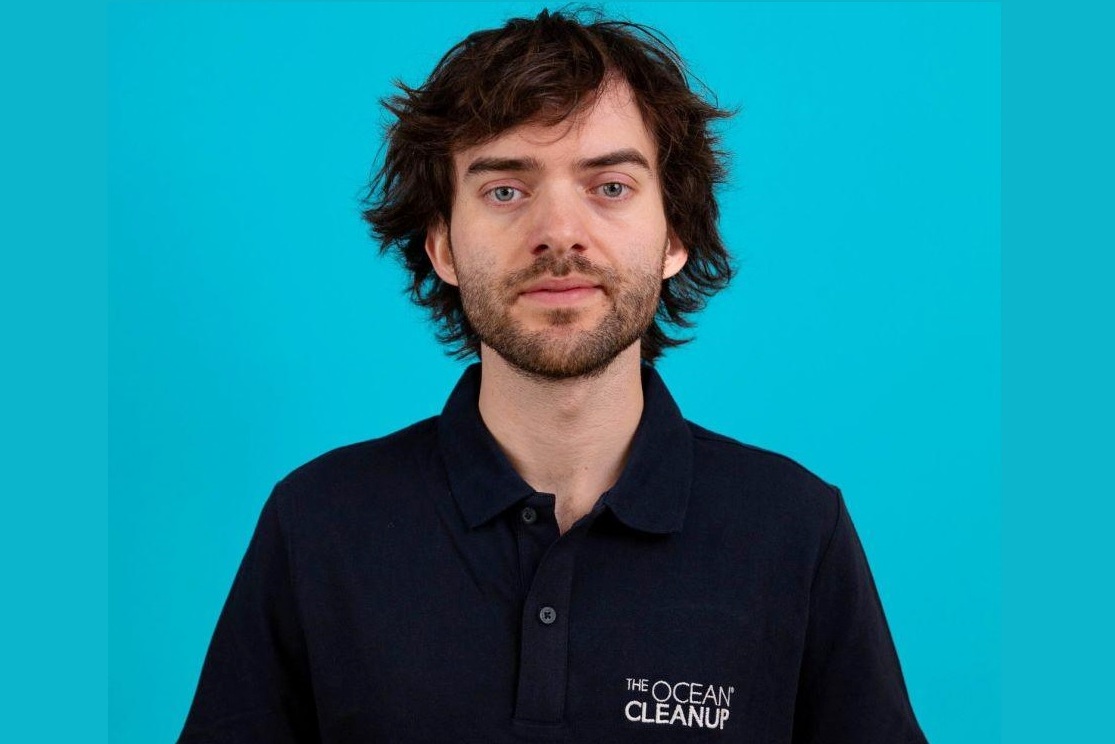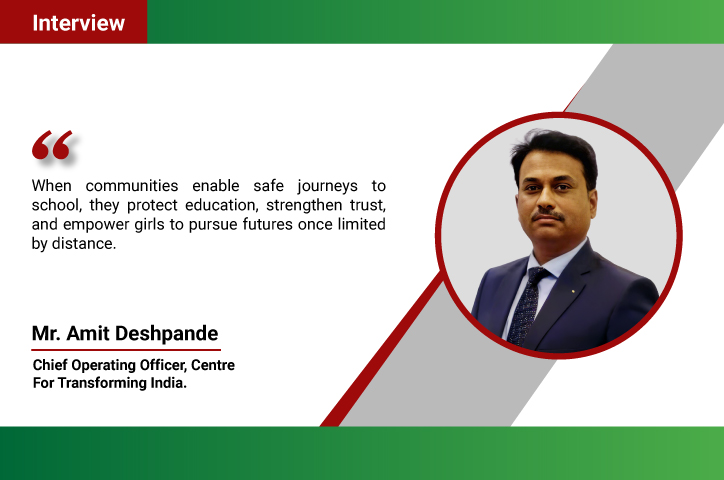In the wake of escalating environmental concerns, AstraZeneca, a global pharmaceutical powerhouse, has taken a major step towards biodiversity preservation and climate action in India. The company has pledged an unprecedented $71 million towards AZ Forest India- the country's largest biodiversity restoration endeavour which involves planting 64 million trees. AZ Forest is a global reforestation initiative through which AstraZeneca aims to plant and sustain 200 million trees across six continents by 2030. The project would also lead to the restoration of 100,000 hectares of land across the regions.
In this exclusive interview with TheCSRUniverse, Dr. Sanjeev Panchal, Country President & Managing Director, AstraZeneca India, delves into the details of their substantial investment and extensive work towards nurturing the environment through massive plantations, adopting regenerative horticultural and agricultural techniques and the creation of sustainable livelihoods to foster holistic development. Mr. Panchal takes us through their major initiatives that include Meghalaya Reforestation and Sustainable Livelihoods Project and healthcare programmes like the Ganga Godavari Cancer Screening Initiative and the Young Health Programme. Their work in India stands as a strong testimony to AstraZeneca’s global commitment to promoting human health and preserving the environment.
Read the full interview for deeper insights:
Q. Please tell us about AstraZeneca's overarching social philosophy and how do the global focus areas shape the company's CSR strategy in India?
A. At AstraZeneca, we seek to create value for society beyond the impact of our life-changing medicines. Sustainability is part of our organisational DNA, embedded into everything we do – from the lab to the patient, and we are making great progress in delivering on our goals and targets. As a global business, we are playing our part in tackling some of the biggest challenges of our time, from environmental protection to access to healthcare. Our overarching social philosophy is grounded in our commitment to improving health outcomes, by harnessing the power of science and innovation to make a positive impact. By using a science-led approach and ensuring we act with integrity in accordance with our values, we are transforming the future of healthcare and making a positive impact.
Globally, our sustainability strategy revolves around three interlinked priorities: Access to healthcare, Environmental protection, and Ethics and transparency. These priorities drive our dedication to fostering a healthy future for people, society, and the planet.
In India, our CSR strategy aligns with these priorities. For instance, our Ganga Godavari screening initiative sits under our Access to Healthcare priority, which focuses on identifying cancer incidence in women through preventative screening camps. We are also dedicated to accelerating the delivery of netzero healthcare, actively mitigating our environmental footprint, and investing in nature and biodiversity. Upholding ethical, open, and inclusive practices is a cornerstone of our business that permeates our organisation and value chain.
Q. The AZ Forest initiative is a significant step toward biodiversity restoration and climate action. What is the global scope of this project and how does it augment AstraZeneca's own sustainability goals while aligning with the circular bioeconomy framework?
A. Forests play a key role in climate change mitigation, supporting biodiversity, enabling circular bioeconomy value chains, and supporting human health. Our global AZ Forest initiative is a pivotal element in AstraZeneca's commitment to biodiversity restoration and climate action, also aligned with our commitment to adopting circular business approaches and reinforcing the company's sustainability goals on a global scale. This reforestation initiative, endeavours to plant and sustain 200 million trees, restoring 100,000 hectares of land across six continents by 2030. Part of our science-based Ambition Zero Carbon strategy, we expanded AZ Forest in 2023, underlining our dedication to climate action and human health.
To ensure AZ Forest projects support community and ecological resilience we partner with the European Forest Institute (EFI) and the Circular Bioeconomy Alliance (CBA) and have co-developed a science-based framework for sustainable landscape regeneration together with the CBA. AZ Forest actively contributes to the World Economic Forum's 1t.org initiative, which aims to plant one trillion trees by 2030.Collaborating with local governments and expert planting partners, our science-led reforestation efforts prioritise the project longevity. The focus extends beyond mere tree planting, aiming to maximise co-benefits aiming to positively impact the livelihoods of 80,000 individuals.
In addition to investing in natural forest restoration and agroforestry, AZ Forest aims to champion the development of forest commodity value chains, fostering nature-based business models for local communities and smallholder farmers. Our projects, including the Meghalaya Reforestation and Sustainable Livelihoods Project, are part of the CBA’s global network of "Living Labs." These Labs adhere to the CBA Principles for Regenerative Landscapes, enabling the development of sustainable, resilient, and locally appropriate circular bioeconomy value chains.
AZ Forest projects are embedded within our broader sustainability strategy and deep decarbonisation efforts. We are committed to reducing our impact on the planet, investing in nature and biodiversity for planetary, human and societal health, and integrating circular economy approaches across our entire value chain.
Q. The AZ Forest India project has a substantial outlay of $71 million. Could you give us an approximate idea on how the funds would be disbursed over the years and what parameters would be used for allocation (among different aspects of the project)?
A. The $71 million budget for the AZ Forest India project will be strategically allocated over several years. The majority of the funds will be invested in the first four years to support crucial aspects of the initiative, including land preparation, nursery development, tree planting, and the establishment of agroforestry commodity value chains. These investments are essential to lay the foundation of the project and promote sustainable practices.
The remaining funds will be dispersed over the subsequent decades to support ongoing monitoring and maintenance of the project areas. This extended investment period underscores our commitment to long-term success, ensuring that the reforested areas thrive and contribute positively to the environment and local communities.
Q. The Meghalaya Reforestation and Sustainable Livelihoods Project is described as a 30-year regenerative horticulture and agriculture project. What factors led AstraZeneca to choose Meghalaya for such a long-term project and what are the broad outcomes that the company expects to achieve?
A. Meghalaya is known for its rich biodiversity, and the project focus on regenerative horticulture and agriculture aligns with AstraZeneca's sustainability goals. We’re collaborating with local communities in the state to develop long term sustainable livelihood projects. We have been truly impressed with the policies and programs of the State Government of Meghalaya and the Government of India, and we strongly believe thatthe AZ Forest initiative, with its focus on the circular bioeconomy, is advantageous for the climate, communities, ecosystem health and a sustainable economy.
We selected the Meghalaya project for its potential to improve biodiversity and livelihoods. The local area can support the production of high-quality produce such as mulberry, turmeric, and essential oils, and by linking these with high value commodities chains we believe the project will bring significant socio-economic co-benefits, such as new jobs, skills, and increased farmer income. As with AZ Forest projects across the globe, it has been designed with technical rigour and in collaboration with local communities, with checks from independent forestry specialists. The aims of the project are to use local knowledge to restore nature in this degraded biodiversity hotspot, focusing on a diverse mix of species, while supporting farming livelihoods.
Q. You are partnering with multiple organisations for the implementation of this project. Please tell us about your main implementation partners and in what ways would they be contributing to the project.
A. We are working with non-profit organisations and expert delivery partners to ensure community-led reforestation that is valued by local people and will ensure the trees thrive over decades. In Meghalaya, we are partnering with the Circular Bioeconomy Alliance (CBA), Earthbanc, Earthtree and two local implementation partners, the Hill Farmers Shiitake Mushroom Co-operative and Worldview Impact (India). Partnerships with the Hill Farmer Co-operative and Worldview Impact (India) will support farmers on the ground and ensure the species planted are in alignment with the state’s AromaticMission to enable the processing of high value essential oils, as well as crop management that aligns with the Organic and Natural Farming Policy.
Q. Beyond the AZ Forest initiative, AstraZeneca is actively engaged in other CSR programs, such as the Young Health Program. How does this program integrate with AstraZeneca's broader social commitments, and what results have been achieved so far?
A. AstraZeneca's Young Health Programme (YHP) is a global disease prevention initiative targeting young people aged 10 to 24 in vulnerable and under-resourced settings. Aligned with AstraZeneca's sustainability commitments, YHP aims to prevent common non-communicable diseases (NCDs) and accelerate sustainable healthcare delivery.
Established in collaboration with the John Hopkins School of Public Health and Plan International, YHP operates holistically, incorporating community programs, research, advocacy, and youth leadership development. Globally, YHP has reached over 10 million young people across 30 countries.
In India, where we partner with Plan India, the YHP programme has been successfully running for 13 years. In Delhi and Karnataka, the program uses peer educators to raise awareness about the harmful effects of behaviours like tobacco and alcohol consumption. The initiative, with six Health Information Centers in Karnataka, has trained over 560 youth, 150 teachers, and 13 government facilitators, reaching approximately 1.3 lakh people and significantly increasing awareness about NCDs. YHP, through partnerships and its dedication to supporting youth, continues its mission of delivering better health choices for brighter life chances.
Q. Another program, the "Ganga Godavari Screening Initiative" targets early detection of cancer among women in under-served communities. Can you share the challenges faced and successes achieved in implementing this program, and what are the future plans for its expansion?
A. The "Ganga Godavari Screening Initiative”, aimed at early cancer detection in underserved communities, has encountered challenges such as lack of awareness, logistical complexities in organising screening camps, societal stigma etc and need to ensure prompt and continuous follow-ups for at-risk patients.
Programme successes include significant reduction in the cancer burden through collaborations with NGOs like the Indian Cancer Society and the Cancer Awareness, Prevention and Early Detection Trust – CAPED India. The initiative is aligned with the government's agenda of building mass-scale disease awareness, contributing to a positive shift in community perceptions. Operational successes were evident with the programme conducting 500+ screening camps and reaching over 12,000 women across states like Uttar Pradesh, Maharashtra, Karnataka, and Tamil Nadu. The establishment of a seamless referral system directs beneficiaries to government facilities for further analysis and treatment.
Going forward, the programme plans to expand its reach to new locations and underserved communities. Educational initiatives will continue, with a focus on working hand in hand with government bodies, including on training Anganwadi workers to recognise early signs and symptoms of disease. The programme remains committed to ensuring equitable access to cancer services and transforming the narrative surrounding a cancer diagnosis at the community level. The success of the programme underscores the impact that can be achieved through strategic partnerships, community engagement, and a commitment to addressing healthcare disparities in cancer detection and treatment.


















